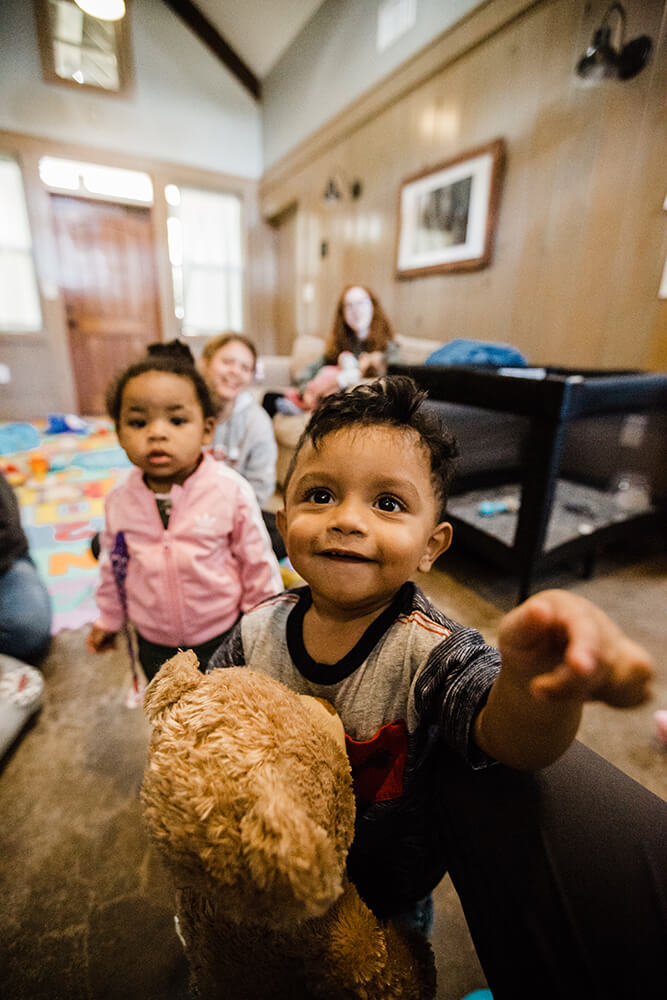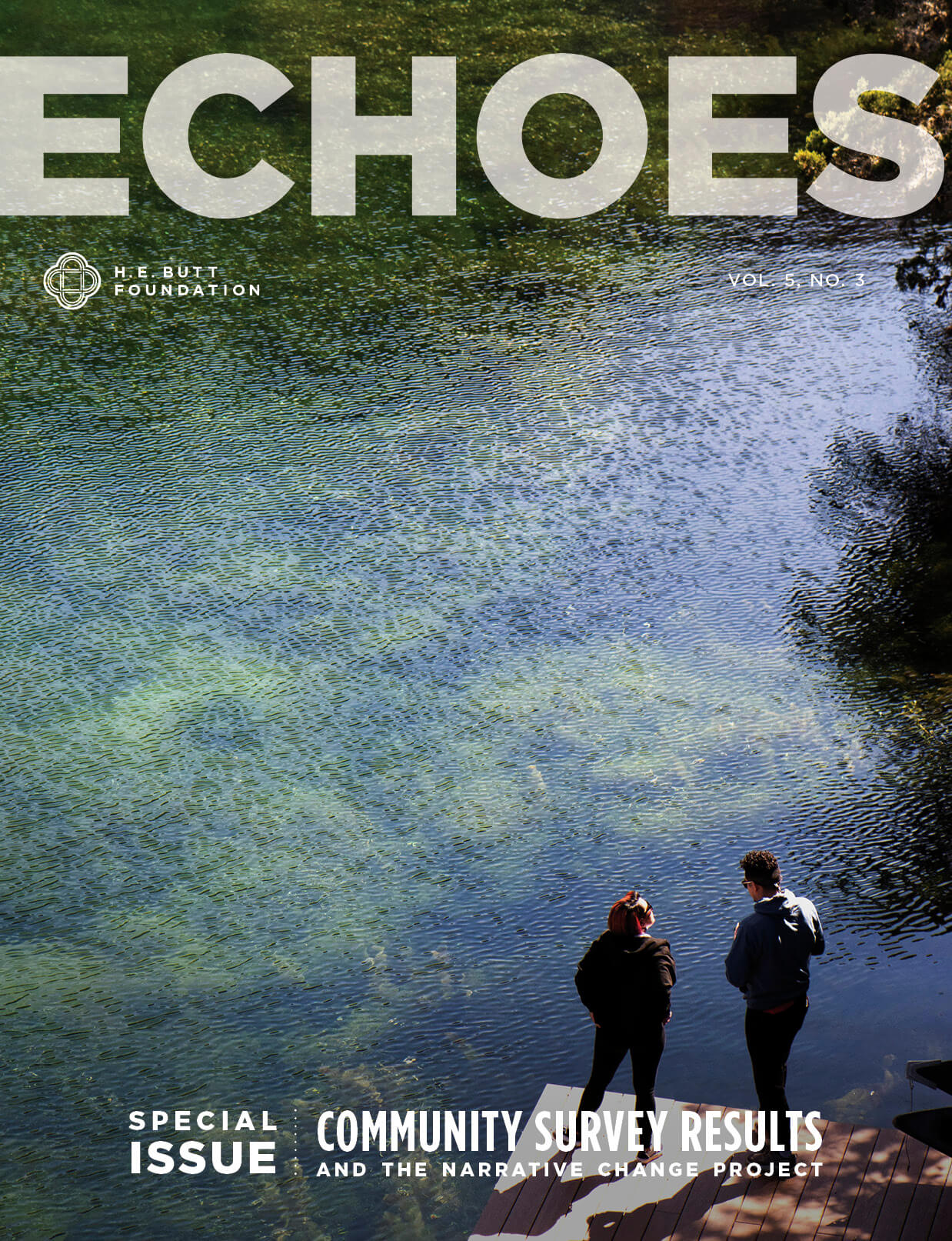
We undertook this survey as one early step toward an ambitious goal: to engage our community in a new conversation about why poverty and inequity exist and persist. To put it differently, we intend to inspire fresh thinking around an age-old question: “Who is my neighbor?”
When Jesus is asked that question, he responds with a powerful story that offers a clear answer: whomever you encounter in need (Luke 10:25–37). We believe we need to keep hearing that question and attending to that answer. We need to live into what it means to be a neighbor today.
Our Narrative Change Project, Know Your Neighbor, is an exercise in asking and answering this question again and again through a variety of storytelling efforts. We tell stories about families and children from various backgrounds and circumstances in our magazine, Echoes, and on other platforms. We host events that gather people for meaningful discussion around inequity in San Antonio and provide experiences designed to educate and inspire people toward personal and social change.
We hope that this work catalyzes new thoughts and feelings about our neighbors and that it inspires new relationships, new priorities, and new actions that will help create a more whole world, one with ample opportunities for all families and children to thrive. We’re measuring the results of this work as we proceed, and we’ll be sharing impact stories and measurements in the seasons ahead.
As one respondent put it in a succinct verbatim:
“Human relationships and connections are the foundation for recovery and survival.”
We agree. That’s what this work is all about.
Foundations like ours are uniquely situated to help foster those connections and relationships. We can’t do everything, of course. But we can tell stories and create spaces that bring people together and catalyze new relationships. That’s actually the work the H. E. Butt Foundation has been doing in various ways for decades. Knowing what we know about poverty and inequity in our region, and with the results of this community survey in full view, it remains the work we’re committed to today.
‣ Subscribe to Echoes! Each issue, we’ll tell at least one story designed to challenge and change perceptions about issues of poverty and inequity.
‣ Come to our events and experiences. Over time, we’ll be offering more opportunities to gather to learn about these issues in person in San Antonio and virtually from wherever you are. Visit Know Your Neighbor for more on events.
‣ Listen and learn. One place to begin is our Learning Library, where we are curating the best resources we can find to better understand poverty and inequity.
‣ Finally, stay tuned. Follow us on Facebook and Instagram and subscribe to Foundation emails and our free Echoes magazine. As we publish stories and promote events and experiences, we want you to have the opportunity to be in the mix.
About this time last year, we sent you a community survey. That was our way of starting a conversation with you about the gaps that exist within our communities, especially the gaps in opportunities and resources that leave so many families and children struggling to survive.
As a solution to a big social problem like inequity, “relationships” may sound too simple or too soft. But lack of connection between people perpetuates a lack of empathy and understanding, which leads to a lack of vision for lasting change. And there’s nothing soft about relationships.
Who received and responded to the survey? The basic answer: older people of Christian faith in Texas who tend to have an abundance of resources. These mature, affluent, religious communities see themselves as oriented to the needs of people experiencing poverty in their areas.
